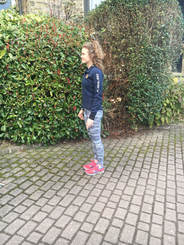 It is so important when deciding to pursue competitive running, that you learn the power of stopping. I am definitely no saint, and struggle with this myself. There is always that temptation in your head, telling you to do an extra kilometre, keep going until it’s an even number, or just do another little loop of the block. It is this voice we find ourselves caving in to, and at the time we feel great for it, praising ourselves because we actually did more than we should. Of course, in some people’s cases, this is a good thing, but in the case of a competitive runner it can be the start of a lethal cycle. This extra 30 seconds, soon turns into an extra kilometre, and before you know it you are running an extra 10 minutes every day, on every run, just because you believe it will make you faster. This is sadly not always the case, and every runner is different. Those added extras may not feel as though they are harming you, but in the long run they will all add up. I admit to being guilty of exactly this. I would turn a 45-minute run into a 50-minute run, do a longer cool down after a session, run an extra short loop around our house, but none of these needed to be done. And most of all, it was ALL on road. All this extra, unnecessary mileage, along with the harsh impact of the road worked to only make the stress my legs were going through from S&C training, worse. I didn’t know when to stop, prior to injury. You would feel great on a run, and add in extra just because it felt so easy. It is important to know when to stop, and end it on a good note before anything negative could occur. Stop before you find yourself with a niggle. And if you do end up with a little niggle, STOP! A minor injury that could be solved with a few days off is much more preferencial to running through the pain, and consequentially having weeks off further down the line. I’m not saying that we shouldn’t ever add an extra bit on to a run as we are feeling great, I’m saying, do not get caught up in this dangerous cycle. Adding unnecessary mileage may only pave the way for even more unnecessary mileage, and before you know it you are doing 15 minutes more on a single run compared to a month ago. It is important as a runner to be controlled over your training and to maintain a sense of perspective. Keep looking forward at what you want to achieve, and be aware of how trashy miles could hinder this. Be sensible, stick to your plan and you will be much better off for it. Adding mileage is beneficial, but when done properly, slowly, and in a way that works for you as an individual. One thing my injury has given me, is the ability to trust what I am doing here and now, and stick to what I am told. You never know when those little bit extras may be too much extra. Be sensible, and train wisely. A bit of extra training off the road and on the cross trainer never hurt anybody.
0 Comments
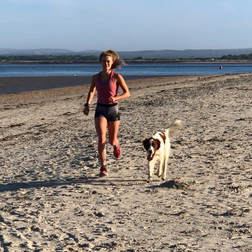 As athletes we all have a plan. A plan of what we want to achieve, a plan of how to achieve it, and a plan of what to do once we do/ don’t achieve it. Consequently, our entire lives are governed by a ‘plan’. But do we really need this plan? Yes of course we need a training plan in order to see progression, and yes we need a plan in order achieve our goals, but it doesn’t mean we need to have every aspect of every day mapped out for us. I am a massive sucker for this. I have a very strong ocd tendency and cannot deal without a plan or routine. Every day of mine is planned and organised and I am not one for spontaneity or randomness. Yes, it can be annoying and I do wish I had an element of randomness in my manner, but this is me and I am quite happy like it. It has its benefits and its detriments. Of course having a plan is beneficial. It gives you direction, helps you know where you are heading, and gives you a pathway to getting there. Even down to the small scale of reality, such as having a plan for the day helps you. It reminds you what you need to get done and ensure you get everything done. However, it is not always wise to stick exactly to a plan. This is something I have massively learnt from. I followed a structured plan, doing exactly as I was told, especially S&C wise, never too much, and especially never ever any less than I was told. This is where I suffered. Consequently I was always pushing my bones to their limit, pushing through their tiredness and foregoing my own thoughts and beliefs. My own judgement was clouded by that of others. It was clouded by those who had set my plan. I have learnt that it is wise to follow a plan, but you must be able to adjust it and be flexible. When needs must, you need to veer from your plan. Trust yourself, and if you believe something is wrong on your plan, respond to it, don’t just keep quiet and suffer detrimentally as I did. Mindfulness is a practice becoming more and more commonly used. In essence it is encouraging you to focus on the here and now, rather than constantly living in the past or future. Mindfulness helps us to be more content with our lives and stops us constantly worrying about the future, a prospect we cannot control in the now.
I believe mindfulness does not have to be practiced by only lying down in a dimly lit room, listening to a calming voice encouraging you to focus on different aspects of your body. I believe running is a form of mindfulness. How many of you are able to go on a run and find yourselves thinking about nothing. I for one, will tell myself to think my worries through whilst I’m running, only to go out, think about absolutely nothing, and in fact I come back feeling better than I would’ve done had I thought through my worries. We all need that time in the day where we can completely disconnect ourselves from the chaos and frantic nature of the world. Constantly being preoccupied by social media, work, health, and other worries does not allow you to calm and unwind. Running is perfect for getting you to be mindful, and disconnecting you for the fast paced lives we commonly live. As I wrote about in my last post, holidays are the perfect time for you to be mindful. You are away, so allow yourself to get completely caught up in the chilled life for a while. Enjoy slowing down a bit, enjoy not checking your Instagram every minute, enjoy going for runs and thinking about nothing. Just get out, take in the calming atmosphere and relax. You will feel so much better for it. Quite often enough we do not give ourselves a break from social media and may get more caught up in it than we think. The risk of social media is that you find yourself constantly comparing yourself to others and focusing on the lives of others. The most important part of being mindful is focusing on yourself and not comparing yourself to others. Be mindful of how important your life is, and how important those immediately around you are. Spend time with your close friends and family and focus on them, rather than on the people you do not know, and may find yourself comparing yourself to. So, what is your mode of mindfulness? Does running help you relax? Let me know what you do to take a step back from life’s chaotic nature. Holidays are always the one time you are allowed to completely relax. But what does this mean to you? To me, this means, chilling, going to nice cafes, going to the beach, but most importantly, still getting all my training done. Of course, I train on holiday, running is something I want to pursue into the future, not simply a healthy lifestyle choice for me. Most people’s response to this is, why do you still train on holiday?
That is because, firstly, I enjoy running and training, therefore it does not seem like a chore to me. On holiday, you want to do what makes you relaxed and calm, and that is how running and training makes me feel. And secondly, because, if you want to be a successful athlete you can’t pick and choose when you train. Yes, every athlete does need a few weeks off for some down time, but every time you go away or have something planned, you can’t just simply skip training. In order to pursue your ambitions in athletics, you need to organise training around your day, or vice versa, but it does need to be included. For instance, if you have planned to go out for the day, get up early and get your run done, this way it doesn’t matter if you get way laid or end up going out till late, it’s done. This is also something to be done by those of you who struggle with motivation. If you go out and run as soon as you wake up, you have little time to dwell over it. You just have to get up and go, then it’s done! That way, no matter how tired you feel by the end of a long day, you managed to fit your training in. This also ensures you use your body before all your energy has been drained at the end of the day. Holidays are great for getting up and enjoying a lovely sunny (hopefully) run along the beach or exploring your surrounding area. If you are visiting somewhere hot, it also means you avoid the heat by running at the coolest time of the day. If you are someone who tends to struggle running on empty, simply have a banana or small yogurt as soon as you wake up to give you that little boost of energy for your run. It is enough to settle your hunger cravings, but not too much to sit in your stomach and give you stomach discomfort. Whilst you don’t have to run whilst on holiday, and it is important to have some down time, if running is something you take seriously, or enjoy doing, you have to learn to incorporate training wherever you go, and learn to work with what you’ve got. Whether it be beaches, water (for aqua jogging), hills, tracks, or roads. Enjoy it and go explore! I am going on holiday this summer and I will be making the most of the sea by doing all my aqua jogging in it instead of a pool, and I will be running on the beach to give my bones a soft ground to run on. Also, if you can, take some weights with you so you get some all-important strength training in. On holiday you have time, use it constructively and wisely. No matter how long you’ve been running for, the basics will always remain the same. Due to the fact I am currently coming back from a serious injury, the basics are even more important than ever. If you are someone who doesn’t run often and you want to start from scratch, or you run a lot but tend to neglect the more technical necessities of running, here are some tips for you too!
POSTURE: Admittedly not everyone has the same beliefs when it comes to running form. I am a strong believer in if it works for you, follow it, but I too also believe there are some specific details in running technique that can contribute to making you a more efficient, fluid runner. Posture is always important. It is important to keep your body in a straight and strong position. If you are someone who tends to slouch, arch your back and bend in the middle, this is not the most conductive position when running. Holding an upright position allows you to say strong in the middle and drive forward. If your body is slouched, you will consequently make yourself heavy and drive yourself down into the ground, rather than out of it and forward. An upright posture allows you to project your body forward and hold you in a strong position as you drive forward. STRENGTH: Strength work is essential to ensuring you have strong leg muscles and joints. Having strong ankles and knees is vital. If you are someone who’s knees tend to knock into each other when you run, or you find yourself going over on your ankles on occasion, you are probably neglecting the strength you require in such areas. Simple calf raises, squats, single leg lunges, etc. can help resolve these problems. In addition, weak ankles are frequently the cause of knee discomfort in runners. Don’t quote this, but I only speak from previous experience. You may think in order to be a good runner you just need to run a lot. This is partly the case, but there is no point running on weak legs. If you lack this strength in mobility you will only put yourself at a greater risk or injury and lack improvement in your performance. Strong ankles are also vital for running cross country!!!! WARMING UP/ COOLING DOWN: Not only is this something neglected by people who only run on occasion, but this is also neglected by a lot of serious runners when it comes to the easy miles. Ensuring your body is warmed up before a run is just as important as the run itself. If you are going into a run, your body needs time to adjust to what it is doing, just as a car needs to be turned on and warmed up before you can drive it. A few simple drills, such as kickbacks, lunges, and heel walks, allow your body to wake up and loosen itself before going for a run. In addition, starting your run at an easier pace until your legs have loosened up is essential. It is your body telling you it isn’t quite awake yet! There is no point forcing yourself past this, as again, you will only risk injury. Just as important as warming up, cooling down is a key part of a run. After a session, you should perform a short jog first, but this is not vital after a regular run. A few simple stretches for about 10 minutes allows your muscles to stretch back out after they have been contracting and set your body on the path to recovery, ready to allow you to run again when you next plan to do so. It doesn’t take long, so don’t neglect this phase! If you are lost for stretches to do, the site below is very helpful. https://www.runnersworld.co.uk/health/the-rw-complete-guide-to-stretching-for-runners REST: I am a strong believer in the power of rest, having seen the benefits of it first hand on multiple occasions. Ok, I am not a good one for resting all day, even on a day off, but it is important to give your body a day of rest from running. If you decide to go for a gentle swim that is ok, but if you train a lot and do not have regular days of rest, then it is probably sensible to do no exercise on your day of rest. A good way of looking at rest days is as ‘adaptation days’. Adaptation days are essential to your body recovering, repairing, and building. In order to allow your muscles to grow you need to let them rest and repair. If you are constantly breaking away at your muscles by exercising, this growth will not occur, and you may inhibit your progression. This is something I had to learn quickly having an injury, and this is where rest really is the best thing! EAT ENOUGH!: This is one of the most important things about being a runner. If you do not eat enough, once again your body does not have the energy to recover and repair itself, and you will become at higher risk of developing an injury. In addition, you need to have enough energy to power through your runs. There is nothing worse than being in the middle of a run and suddenly, you have no energy. The rest of the run becomes a massive struggle and in turn you lose any benefit the run may have given you. Running is not a destructive sport, eat wisely and enough and you will power forward. Giving your body some sort of protein after a tougher run is essential, as it helps speed up your recovery process and once again prepares you for your next run. If you are interested in more around food, I will be doing a blog post specific to this topic soon! TRAINERS: last but not least is trainers. Having the right pair of trainers for your feet is essential. So many runners run into trouble (pardon the pun!) because they do not have the right trainers for their feet. This can lead to issues such as shin splints, collapsed arch’s, knee problems and many more. A decent pair of trainers may seem expensive at first, but the investment is definitely worth it. You will be spending a lot of time in them (I hope), therefore it is worthwhile to invest in a decent pair of shoes. Get yourself to a local running shop with a running machine so you can test the shoes out before you buy them and have a gait analysis. This will definitely help you in your future running journey. Once you have found the right pair you can stay with them forever. I have been wearing the same make and model of trainer for my regular runs since I was 9 years old, and I have never had any problems with them. I have of course had recent analysis to ensure these are still the right shoes for me. I hope these ‘back to basics’ tips have helped those who are new to running as well as thoughts who are regular runners. Let me know if you have any comments/questions. |
Hannah IrwinI love to run and I love to write, so I write about running! Archives
March 2023
Categories |
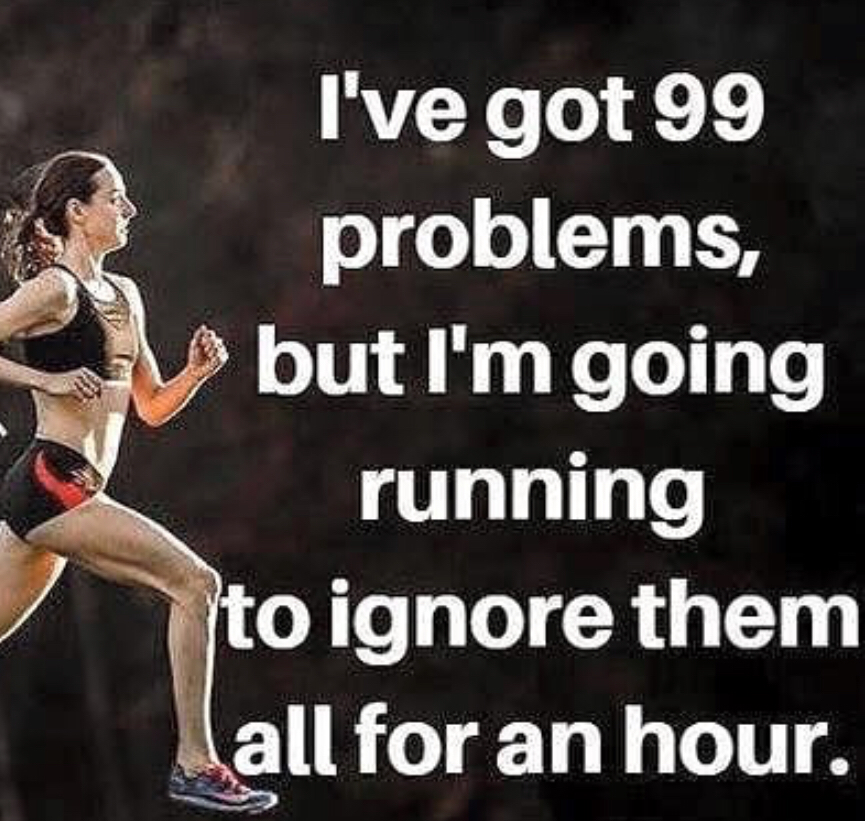
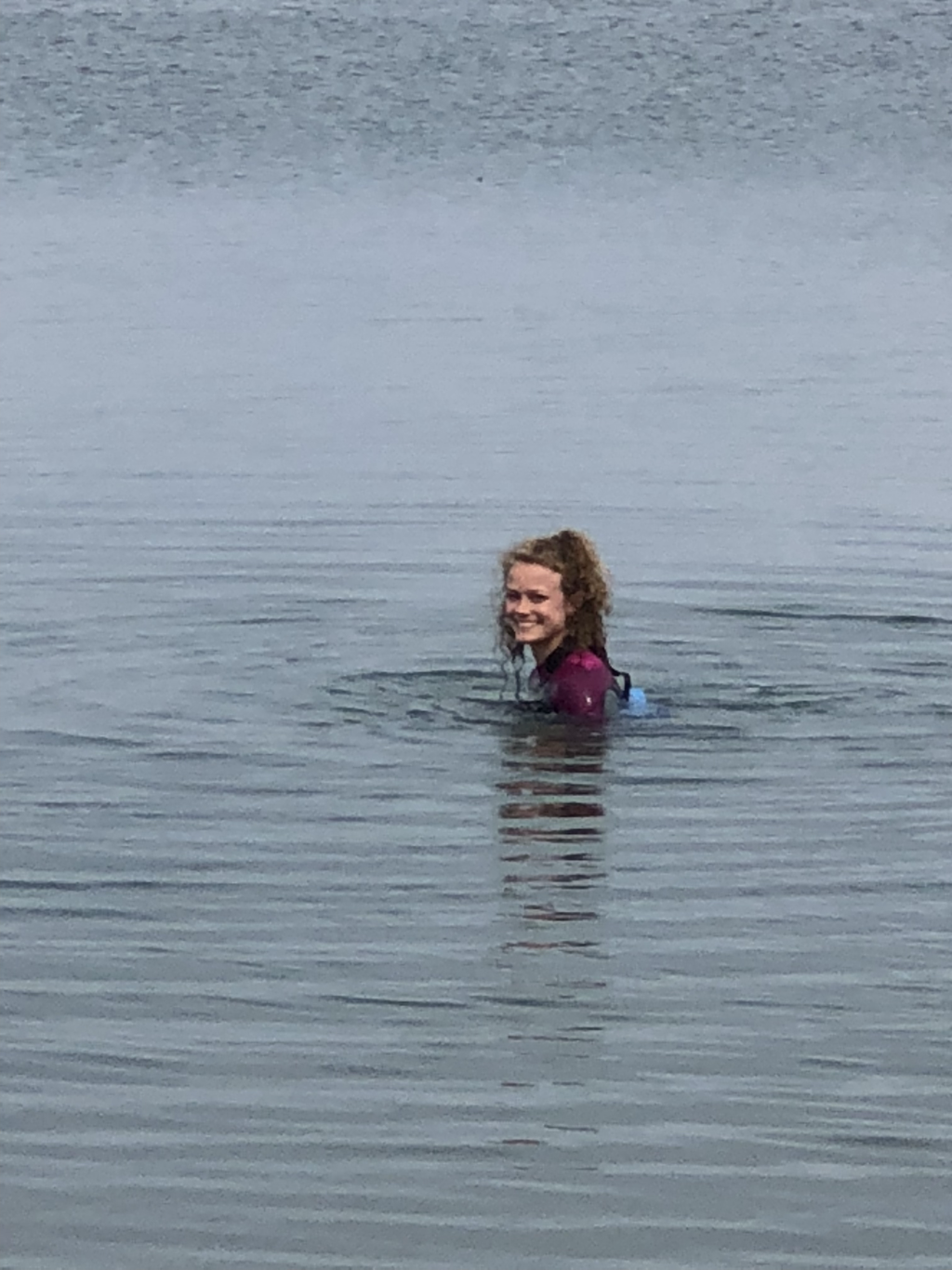
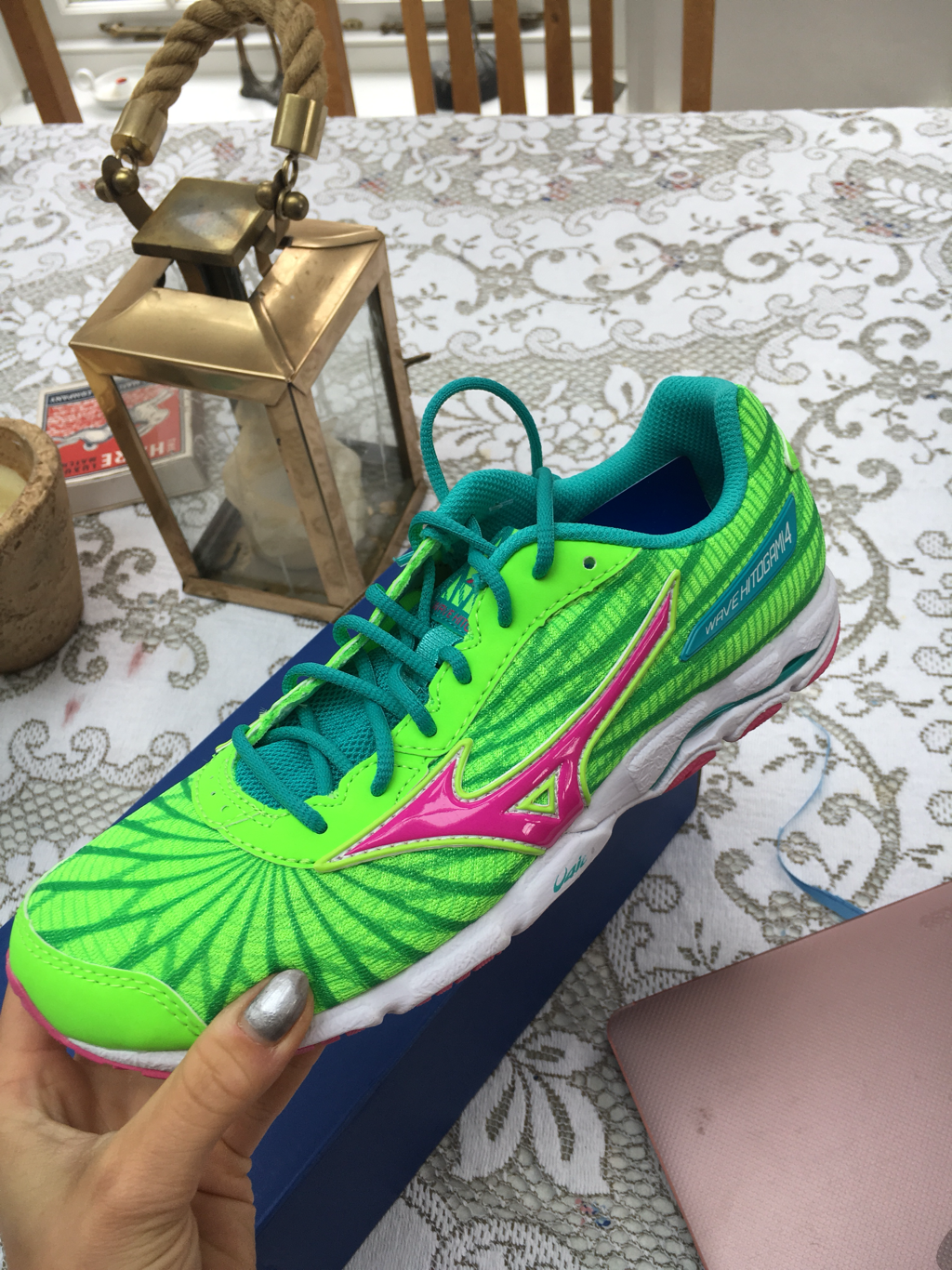
 RSS Feed
RSS Feed
